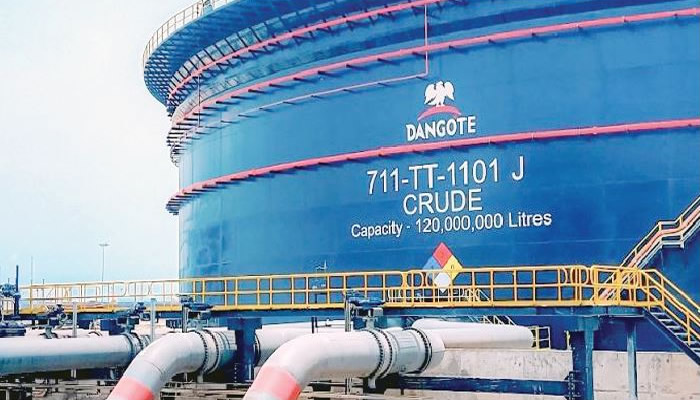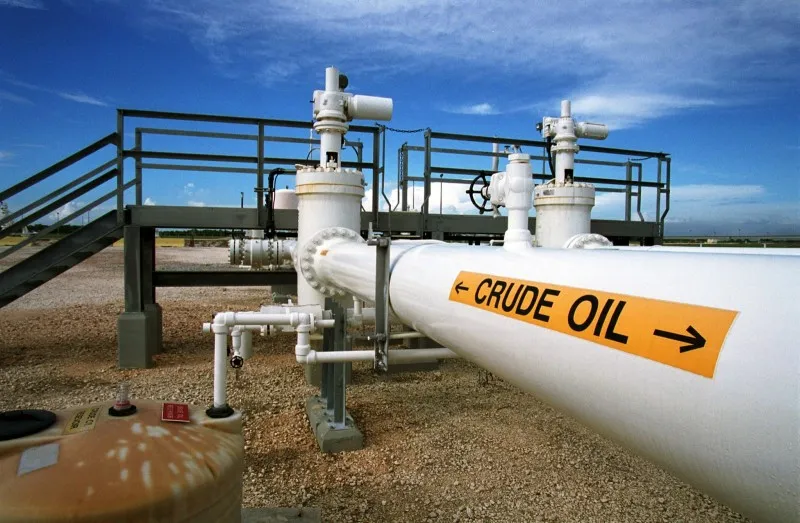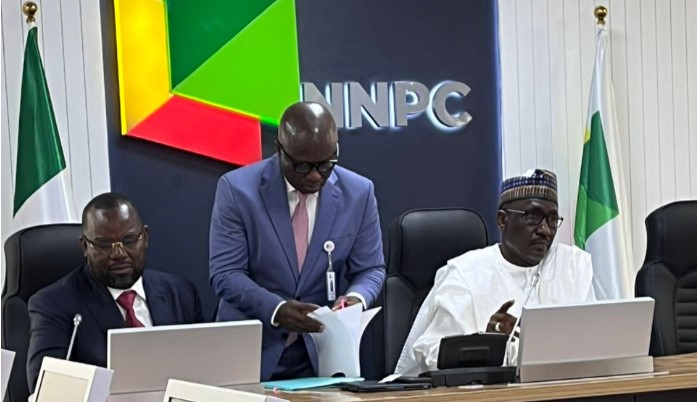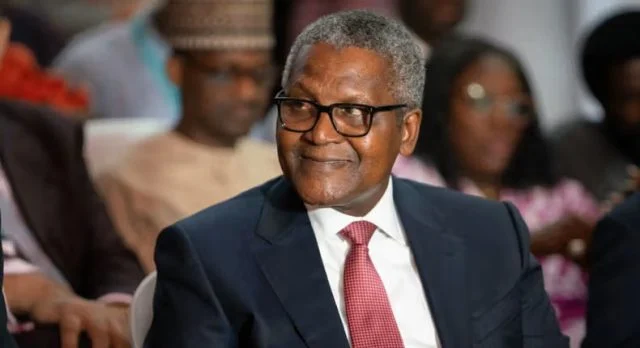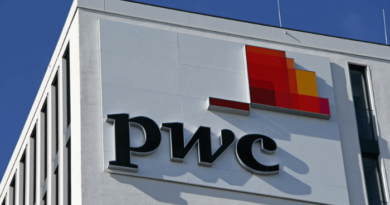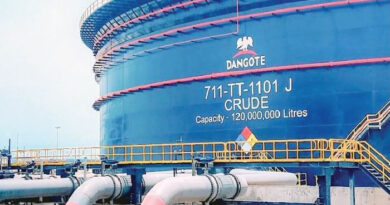FG Sells N219.38bn Crude to Dangote Refinery in Four Months Amid Currency Dispute and Dual Market Strategy
The Federal Government of Nigeria, through the Nigerian National Petroleum Company Limited (NNPCL), has sold crude oil valued at N219.38 billion to the Dangote Petroleum Refinery in the first four months of 2025, according to newly obtained documents submitted at Federation Account Allocation Committee (FAAC) meetings.
This significant sale forms part of a wider oil supply strategy, despite operational hiccups surrounding the much-talked-about naira-for-crude initiative. The documents reveal that nine crude oil cargoes, totaling 1,901,850 barrels, were delivered to the 650,000-barrels-per-day Dangote Refinery, sourced from fields operated under Production Sharing Contracts (PSCs) by Sterling Oil Exploration & Energy Production Company and Nigerian Agip Exploration.
Unit prices ranged between $74.87 and $80.34 per barrel, based on exchange rates fluctuating from ₦1,501.22/$ to ₦1,562.91/$, reflecting the volatile nature of Nigeria’s forex market during the period.
The breakdown of monthly supply to Dangote shows a dramatic surge:
- January: ₦17.52 billion
- February: ₦32.95 billion
- March: ₦56.97 billion
- April: ₦111.95 billion
This represents an astounding 538% increase in crude delivery between January and April alone, underscoring the government’s push to scale domestic refining. Despite this, Dangote Refinery has consistently criticized the inadequacy of crude allocations, forcing it to rely heavily on U.S. crude imports to sustain operations.
Temporary Halt of Naira Payments
The relationship hit a stumbling block on March 19, when the refinery suspended sales of its petroleum products in naira, citing a breakdown in the naira-for-crude exchange arrangement. In a public notice, the company said its naira-based fuel sales had outpaced the value of crude it received in the local currency, making it difficult to balance dollar-denominated procurement obligations.
“Our sales of petroleum products in naira have exceeded the value of naira-denominated crude we have received. We must adjust our sales currency to align with our crude procurement,” the statement read.
The consequence of the halt was immediate: petrol prices in private depots in Lagos jumped above ₦900 per litre, intensifying pressure on fuel affordability and triggering public outcry.
FEC Reaffirms Naira-for-Crude Policy
In response, the Federal Executive Council (FEC) directed the full implementation of the naira-for-crude initiative, describing it as a long-term policy directive to promote sustainable domestic refining and lessen dependence on imports. The policy aims to support refineries like Dangote’s in obtaining crude using naira, to lower refined product prices for Nigerian consumers.
A technical subcommittee has been meeting to resolve implementation gaps. However, sources close to the arrangement suggest the model may not be fully feasible due to global trade standards, which often require oil purchases in U.S. dollars.
Crude Exports Still Key to Forex Earnings
While domestic crude sales stood at N219.38bn in four months, crude exports to foreign buyers brought in slightly more at N231.47bn in the same period, highlighting the government’s dual focus—supporting local refining while still prioritizing foreign exchange earnings.
NNPCL sold $153.03 million worth of crude oil to international partners between January and April, with naira revenue influenced by the CBN’s advised monthly exchange rates.
- January: $31.13m (₦45.99bn)
- February: $41.23m (₦61.50bn)
- March: $79.07m (₦121.44bn)
- April: $1.59m (₦2.53bn) — a sharp decline due to disrupted exports
A further breakdown of the FAAC document revealed that 11.2 million barrels of crude were exported in March, generating $1.59 billion, which was remitted in April. In contrast, local refinery sales dropped to zero during that same month, amid the naira-for-crude standoff.
Gross receipts from oil and gas sales in April totaled $6.25bn, translating to ₦1.01 trillion at the official exchange rate. While gas exports fetched $4.56bn, crude oil receipts dropped by 98%, from ₦771.46bn in March to ₦15.63bn in April, indicating a troubling revenue slump.
Stakeholders Urge Price Pegs and Refinery Support
Amid concerns about soaring fuel costs, Hammed Fashola, Vice President of the Independent Petroleum Marketers Association of Nigeria (IPMAN), urged the government to peg domestic crude prices to help refiners like Dangote produce fuel at affordable rates. He emphasized the need for cooperation with Aliko Dangote and warned that failure to support local refining could worsen inflation.
“This is the time to take advantage of the Dangote refinery. The government needs to work closely with Alhaji Aliko Dangote,” Fashola said.
He recommended that the Presidential Committee on the naira-for-crude deal agree on fixed prices for local crude allocations to stabilize the market and protect consumers.
The Federal Government’s sale of over N219bn in crude to the Dangote Refinery, despite ongoing pricing and currency tensions, marks a pivotal moment in Nigeria’s energy strategy. Balancing domestic refining needs with foreign exchange goals, and navigating between market forces and policy ambitions, will be crucial in determining the success of the naira-for-crude initiative—and the sustainability of local fuel prices for millions of Nigerians.

